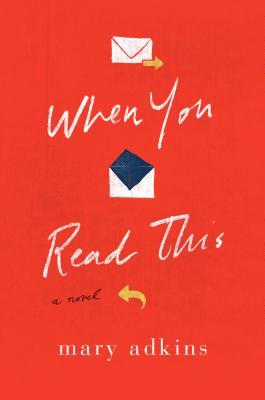This surprisingly uplifting novel is centered around a “d-log” [as in drawing blog] started by Iris Massey, 33, after she was diagnosed with oat cell lung cancer, a very aggressive and highly malignant form of lung cancer. When she was got her diagnosis, she was given six months at most to live. She started the d-log to help her figure out what her life meant. She wrote:
“This whole time I thought my real life hadn’t started yet. Turns out that was my life. I have six months or so to make that okay, somehow.”
Iris signed up with the graphic storytelling site “dyingtoblog.com” and began writing. Excerpts from Iris’s d-log are interspersed throughout the rest of the book, which consists of emails and text messages as well as blog posts.
After Iris died, her boss (and also her good friend) at a brand management firm, Smith Simonyi, hires someone new as an assistant, a Stanford student named Carl Van Snyder Jr. When Carl was clearing out Iris’s desk, he found a printout of Iris’s blog titled “My Life’s First Draft: A Blog Turned into a Book by Iris Massey.” There was also a note asking Smith to get it published.
Smith contacts Jade, Iris’s 37-year-old sister, to give her some of Iris’s things and to talk to her about publishing the d-log. Jade is opposed to it and disgusted by the idea, calling it “cancer porn.” She is dealing with issues of her own that make her less than congenial. (Some of the emails throughout the book from Jade are directed to the TherapistAwayNetwork, or TAN. The TAN site suggests a prompt, like “What Have You Lost?” and the client takes it from there.)
Jade is also dealing with her grief over Iris, and in fact the author begins the book with a poem, putatively by Jade, that I thought was excellent:
Googling Grief
By Jade Massey
All the poems about grief
Are wrong.
My grief is the
Opposite
Of a couplet.
It is not pretty.
It does not make room
For rhymes.
Here is my poem
About grief:
So this is pain.
This is what it was
All along.
Simon too is processing grief and anger, not only about Iris but about the lives and fates of his parents.
The question is, how will all of them work through this trying time? The interactions between Jade and Smith, affected by not only Iris’s blog but the humorous interjection of Carl into their lives, makes for a lovely ending, in spite of everything, and one which holds some surprises.
Discussion: Iris’s blog is by turns funny, poignant, insightful, clever, and sad. One of the posts I liked best was one in which she lists some thoughts, like “Wearing red boots today,” “Overheard a toddler say ‘when I was a child’” and “My bagel’s warm cream cheese” and over the top of it she writes in large letters: “NONE OF IT MATTERS AND I NEVER WANT IT TO END.”
Evaluation: This truly lovely story about making the best out of tragic situations is well worth reading.
Rating: 4/5
Published by Harper, an imprint of HarperCollins, 2019








I want to read this book. I love books told in ‘interesting’ ways – like epistolary novels. I guess that diaries and letters now have to be updated to include texts and blogs and emails and whatever else. I’m going to watch for this one.
This is so close to some of my wild ideas about books from blogs and fascicles found in drawers after death that it makes me wonder why more of us don’t try to get the blog–or some part of it–published before we die.
That sounds really good. I love that line, “None of it matters and I never want it to end.”
I’m looking for this one. Thank you.
I read this post with interest and was especially touched by the last passage you mentioned. None of it matters… how spot-on about the unassuming, trivial portions of life. We still want to clutch at them and keep going. This might be a bit melancholy for me, having my husband and brother with life-threatening injuries in past few years. On the other hand, it might be honest in its assessment of real life.
Everyone reacts differently of course, but this book didn’t strike me as gut-wrenching, like I thought of Paul Kalanithi’s book “When Breathe Becomes Air.” I was sobbing so hard by the end of that book I could hardly see. (Which was not good, since I listened to it on audio in the car….) This book on the other hand is very much focused on the *other* characters, with the entries from the d-log not so prominent, and up until near the end, not so profoundly touching. Because her point about the quotidian was very, very poignant.
I think I have a copy of this and was wondering if it was going to be too tough. Now I think I’ll give it a try.
“Cancer porn” is a penetrating phrase — so many stories are true but become something unpalatable when made into popular literature. I can’t decide if your description makes this sound like a good version or a dubious version. You wrote about it as if it were non-fiction, but you did say it was fiction: another element that makes me doubtful about it.
best… mae at maefood.blogspot.com